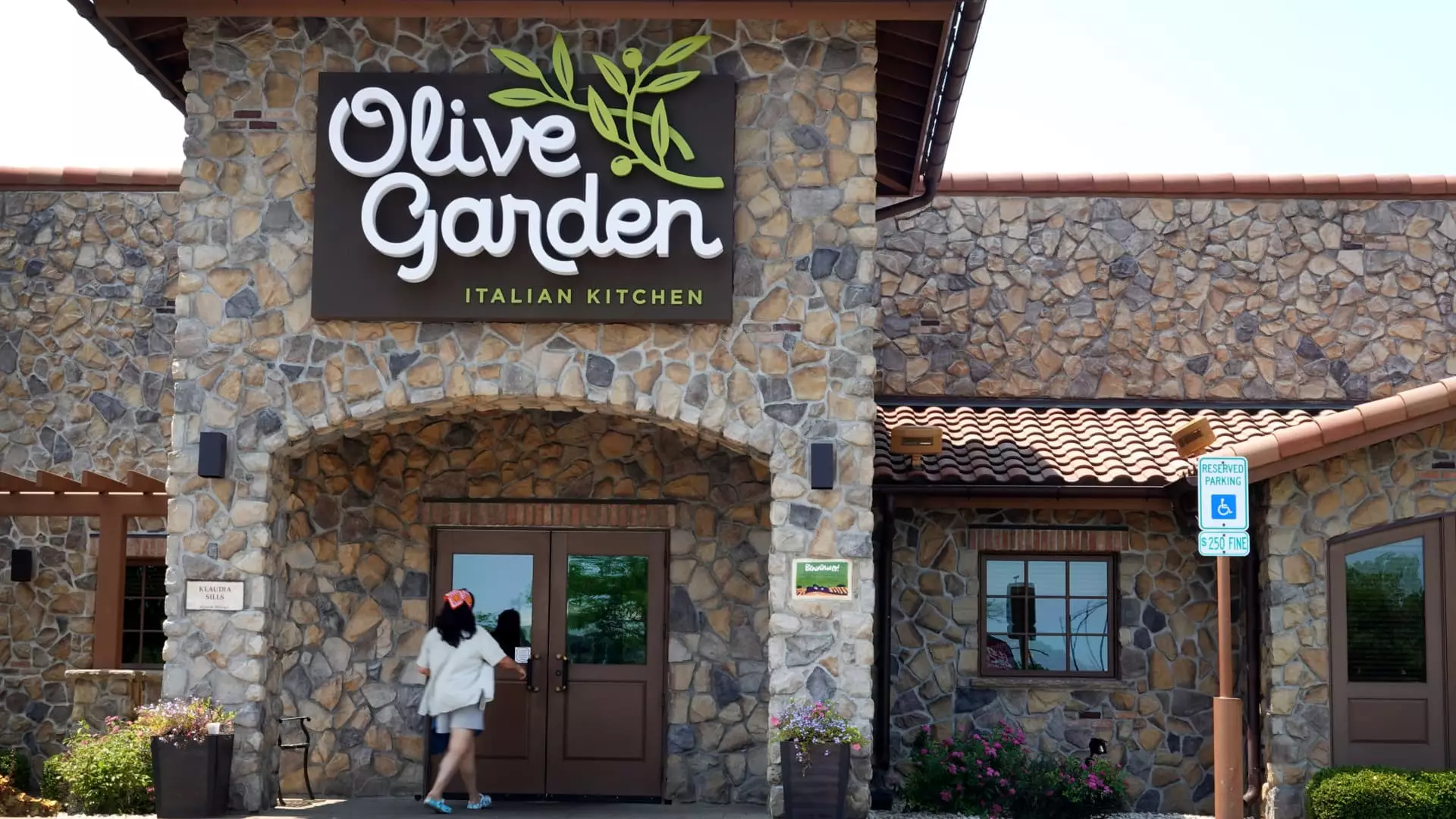Darden Restaurants, a major player in the dining industry, disclosed its quarterly earnings on Thursday, revealing results that fell short of analysts’ expectations. The figures for the quarter ending on August 25 indicate a concerning trend, particularly within their flagship chain, Olive Garden, and the fine dining segment, which includes brands like Eddie V’s and The Capital Grille. The reported earnings per share came in at $1.75, slightly below the anticipated $1.83, while revenue of $2.76 billion also underperformed against the forecast of $2.8 billion.
Despite the disappointing results, the company’s stock experienced a notable uplift, increasing by approximately 10% in premarket trading. This seemingly paradoxical reaction underscores the complexities of market expectations and investor sentiment, suggesting that stock prices can sometimes reflect a longer-term outlook rather than immediate performance indicators. Darden’s CEO, Rick Cardenas, maintained a positive tone, emphasizing confidence in the company’s resilience and the strategic measures being implemented to cater to customer needs without jeopardizing long-term sustainability.
Darden’s report highlighted a concerning 1.1% decline in same-store sales, a crucial metric for any restaurant chain, indicating challenges in customer retention and visitation. Olive Garden, in particular, saw a significant decrease in same-store sales, down 2.9%. This decline raises questions about customer loyalty and brand appeal, compelling the chain to reintroduce promotions such as the “Never Ending Pasta Bowl” in an effort to regain lost traffic. Such initiatives may offer short-term boosts, but they also pose risks if perceived as temporary fixes rather than sustainable strategies.
Moreover, the fine dining division’s same-store sales plummeted by 6%, a stark contrast to the success experienced by LongHorn Steakhouse, which is currently the only brand to report growth with a 3.7% rise in same-store sales. This disparity points to a significant divergence in consumer spending habits, especially in a recovering economy where dining out can often be prioritized differently among various segments.
Looking ahead, Darden has reaffirmed its optimistic full-year forecast, projecting earnings per share between $9.40 and $9.60 and net sales ranging from $11.8 billion to $11.9 billion for fiscal 2025. While this guidance suggests confidence in their long-term strategy, it contrasts sharply with the immediate pressures faced by their brands.
The experienced leadership within Darden is poised to navigate these turbulent waters through careful management and innovative marketing strategies. By prioritizing customer engagement and adapting to changing dining trends, there is potential for recovery and growth. The current downturn may serve as an impetus for Darden to refine its operational tactics and enhance customer experience to bolster brand loyalty and sales performance in the competitive dining landscape.
While Darden Restaurants faces considerable challenges in the current economic climate, its strategic outlook and adaptability may pave the way for a more resilient future, contingent upon effective execution and understanding of consumer behaviors.


Leave a Reply